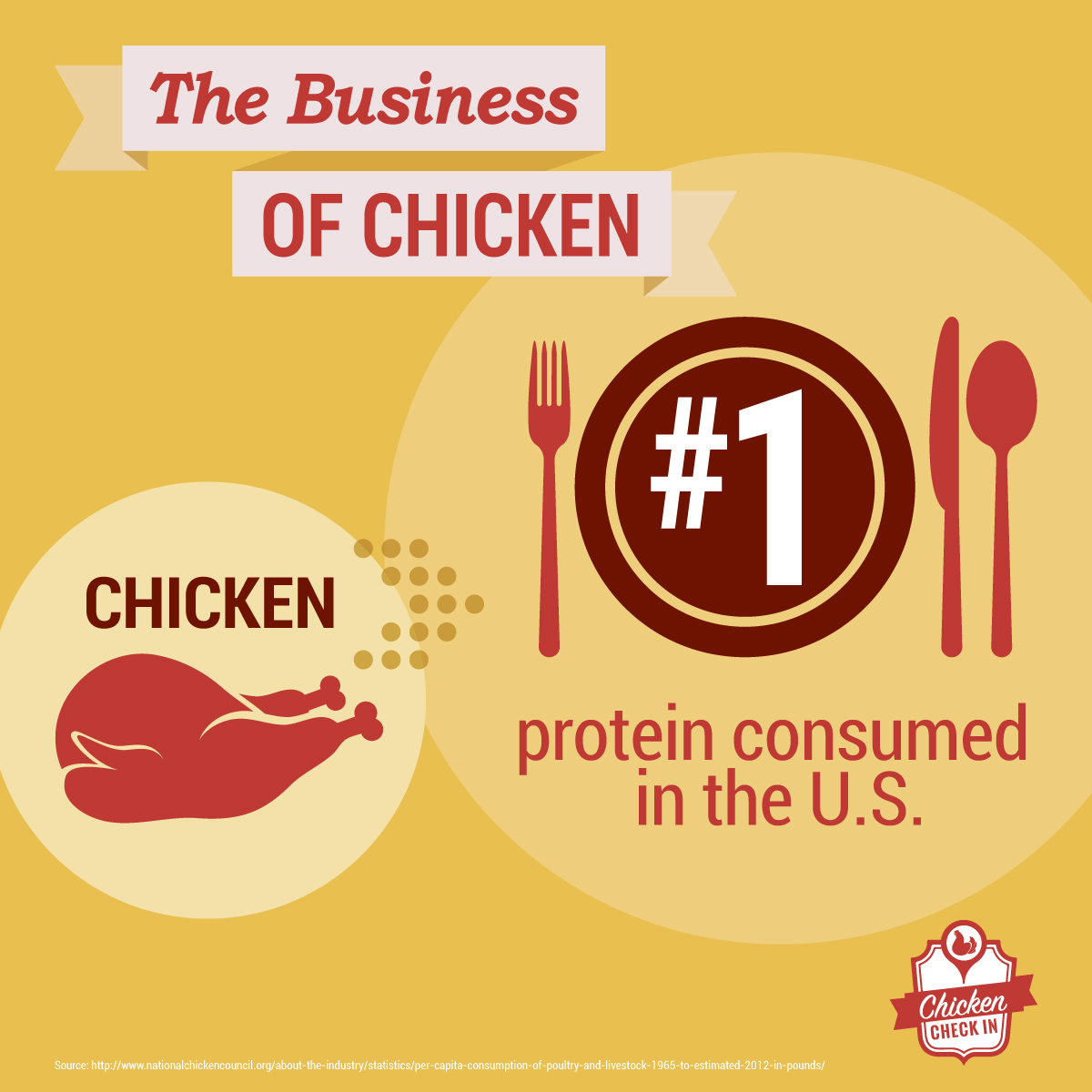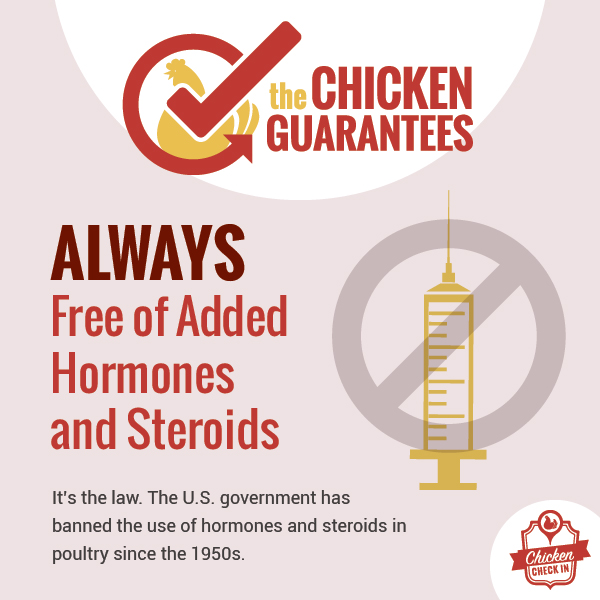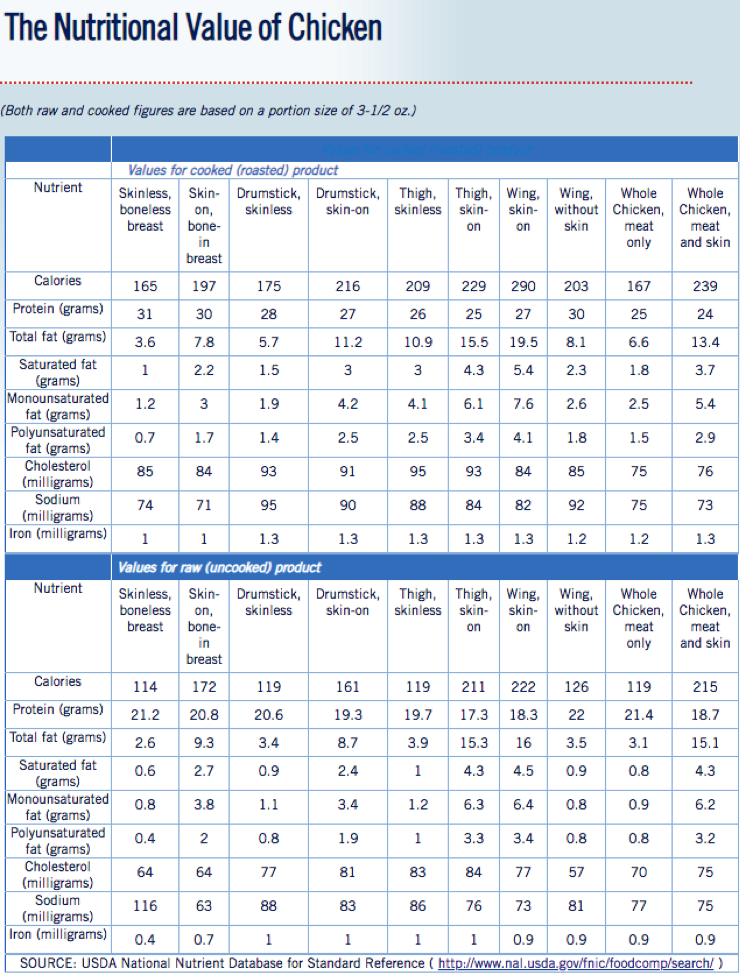3 Facts You Need to Know about Chicken
Chicken Fact #1: Chicken is the #1 protein – and #1 poultry – consumed in the U.S.

Chicken is one of the most versatile proteins. It can be prepared in many ways—roasted, broiled, grilled, or poached, in soups, stews and potpies—and with a variety of seasonings, toppings and sauces. It’s no wonder that chicken is a staple in practically every kitchen.
In the United States, consumers purchase chicken over other proteins because it is versatile and convenient. Americans ate a record 93 pounds of chicken per person in 2018, according to the U.S. Department of Agriculture.
Furthermore, Americans anticipate increasing their overall chicken consumption in the next 12 months. Twenty-nine percent of consumers anticipate eating more chicken from the supermarket and 19 percent anticipate eating more from a food service establishment.
Chicken Fact #2: Chicken is an extremely nutritious protein.
According to health professionals and nutritionists, protein is the cornerstone of a healthy and balanced diet. Chicken is one of the best sources of what nutritionists call “high-quality” protein. The body uses it to create new cells, repair existing ones and produce the enzymes necessary to boost metabolism and promote healthy digestion.
Learn more about the importance of protein in your diet here.
Not only is chicken packed with muscle-building protein and nutrients, but research shows eating chicken may help with weight control. Chicken also gives consumers the highest rate of nutrients for their food dollar.
Chicken Fact #3: Chicken – and ALL poultry – never contains added hormones or steroids.

You might be surprised to learn that there are no artificial or added hormones or steroids used in the production of U.S. poultry, including chicken! The use of hormones and steroids is expressly forbidden by law by the U.S. Food & Drug Administration (FDA).
So, while a “no hormones added” label on a package of chicken may lead you to believe that the product is different or healthier than similar products without that label, all chicken products sold in the United States must be free of added or artificial hormones and steroids. In fact, labels that read: “raised without hormones” or “no hormones added” must also include a statement saying that no hormones (or steroids) are used in the production of any poultry raised in the United States.
So if you’re deciding between a package of chicken that says “no hormones added” and one that doesn’t, you can rest assured that neither of them do.
